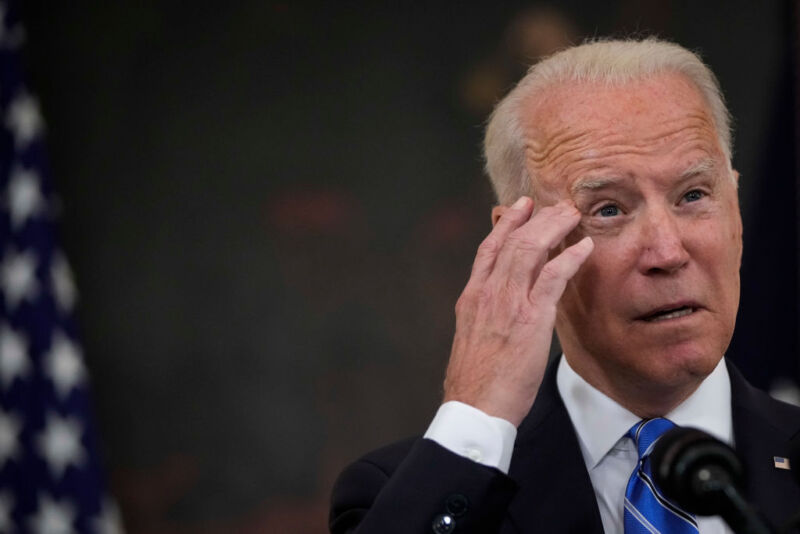
Today, three conservative-leaning judges with the 5th US Circuit Court of Appeals heard oral arguments to decide if an injunction should be lifted that restricts the Biden administration from communicating with social media platforms and requesting content takedowns.
The appeal followed a July 4 order from a district court, which found that the Biden administration had coerced platforms into censoring Louisiana and Missouri officials, whose posts were deemed as spreading COVID-19 misinformation.
Arguing for the Biden administration was attorney Daniel Bentele Hahs Tenny, who requested that either the injunction be reversed or a stay of the injunction should be extended by 10 days “in case the solicitor general wishes to pursue Supreme Court review.”
Missouri solicitor general Joshua Divine and attorney Dean John Sauer were on the other side of the argument. Both Divine and Sauer urged the court to uphold the injunction, claiming that states and individual plaintiffs suing had legal standing to seek the injunction.
Tenny began by claiming that the injunction was improper, partly because plaintiffs didn’t identify specific conduct by the Biden administration that requires an injunction. He also argued that with COVID-19 no longer considered a state of emergency and platforms like Twitter no longer policing COVID-19 misinformation, it’s unclear what the ongoing threat would be to plaintiffs seemingly at lesser risk of content removal.
“You have to find for each claim as to each defendant, each thing you’re trying to enjoin that is going to harm these individual plaintiffs,” Tenny said.
Because the plaintiffs did not do that, Tenny argued that the injunction should be reversed.
“What the district court should have been doing is looking for specific things that the government was doing, targeting specific actions by social media companies, causing irreparable injury to these plaintiffs, and if it found any, it could enjoin those, but it didn’t find any,” Tenny said. “That’s the problem.”
Seemingly in Tenny’s view, states have to show ongoing injury to justify the injunction. Lawyers for the plaintiffs, however, claimed that the plaintiffs have recently been subjected to COVID-19 takedowns. That included Sauer, who claimed that a YouTube video featuring him giving a talk about this case was removed, even though the government’s and some platforms’ COVID-19 policies have softened.
What constitutes a threat?
Another argument that Tenny made focused on whether the government, by requesting takedowns, was actually coercing platforms. Tenny claimed that while messages between the Biden administration and social media companies could sometimes be “testy”—apparently “f-bombs” were dropped—there is “no indication on the record” of what the implied threat would’ve been to social media companies if they didn’t comply with takedown requests.
Later, Sauer disputed Tenny’s position, arguing that plenty of evidence “absolutely” supported the district court’s finding that the Biden administration had coerced social media platforms into censoring content.
Perhaps most significantly, Sauer said that it was clear that platforms felt coerced because there was evidence that platforms didn’t want to comply with requests but later bowed to pressure from officials. Sauer cited one example. He said that three days after a Meta platform refused a request, “you have the White House press secretary at the podium, threatening” platforms “with a robust antitrust program”—which “Mark Zuckerberg has publicly stated is an existential threat” to his company—and “in the very next sentence,” the press secretary says, “take down the misinformation.”
Judges asked both sides to help them understand when such statements can be considered public policy announcements that are an ordinary part of the press secretary’s duties and when they should be considered threats.
Sauer agreed with the district court that it was necessary to view the sequence of events as a timeline. Between public and private messages requesting that platforms take action, Sauer said that the evidence seemed clear that the government was pressuring social media companies to submit to takedown requests or risk undesirable policy changes—such as strengthening antitrust enforcement or amendments chipping away at Section 230 protections.
Tenny argued that “it’s extraordinary to say, if the president’s view is that certain conduct of disseminating information is harming the public safety of the United States of America, the press secretary cannot express them.”
“If it’s backed by a threat that says, ‘If you don’t do what we want, then this will happen to you,’ that’s different,” Tenny said. “But that’s not what happened in this case.”
Tenny also cited a statistic saying that platforms only complied with 50 percent of the FBI’s takedown requests.
“The idea that the social media companies felt like they had to bend to the FBI’s will, when half the time they didn’t, I mean, this just doesn’t support any of these theories,” Tenny said.
Judges will soon decide if the injunction should be reversed or upheld.
The Biden administration has claimed that the government’s free speech rights will be unconstitutionally restricted if the injunction remains. It’s also warned that officials cannot stop misinformation in case of another emergency.
https://arstechnica.com/?p=1960281

